
How lucky are we? Parks, lakes, woodland and open fields all right on our doorstep. Some are well known, busy with visitors whilst others are quiet little pockets of nature.
They’re all part of a special project that Russell Hedley of the Lancashire Wildlife Trust has been working on since April.
“Funded by Cadent Foundation, it will engage members of the public to volunteer and help protect nature at existing Sites of Biological Importance between Bailey’s Wood and Moston Brook. Community groups and schools will also be involved.”
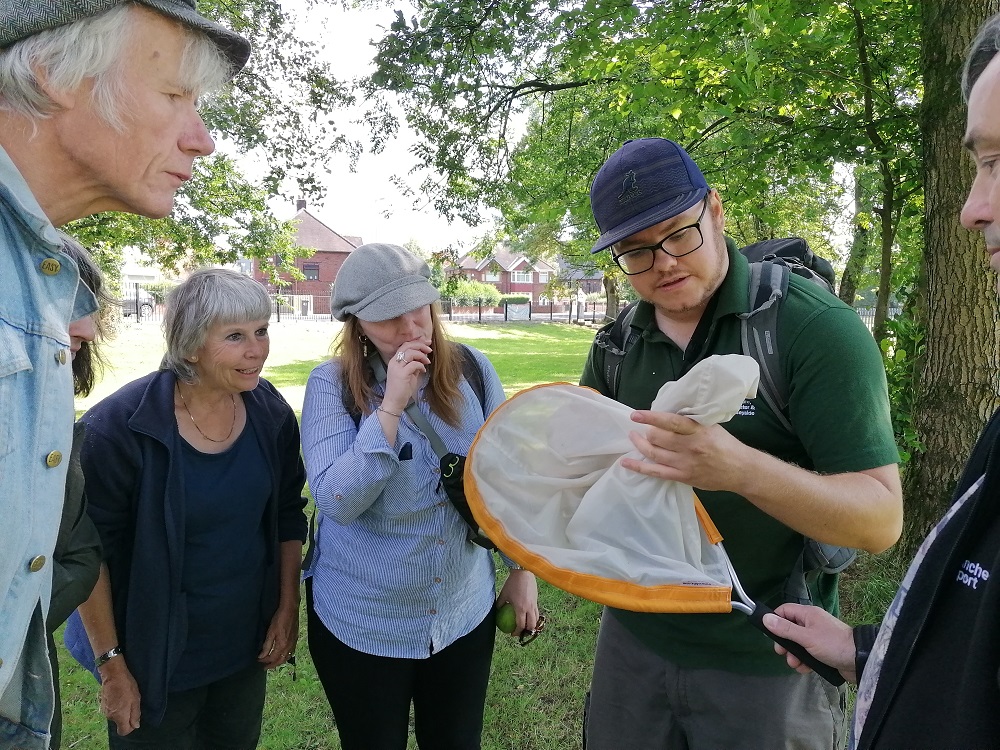
In addition to Bailey’s Wood and Moston Brook the other ‘sites’ are Boggart Hole Clough, Broadhurst Clough and The Fairway Nature Reserve.
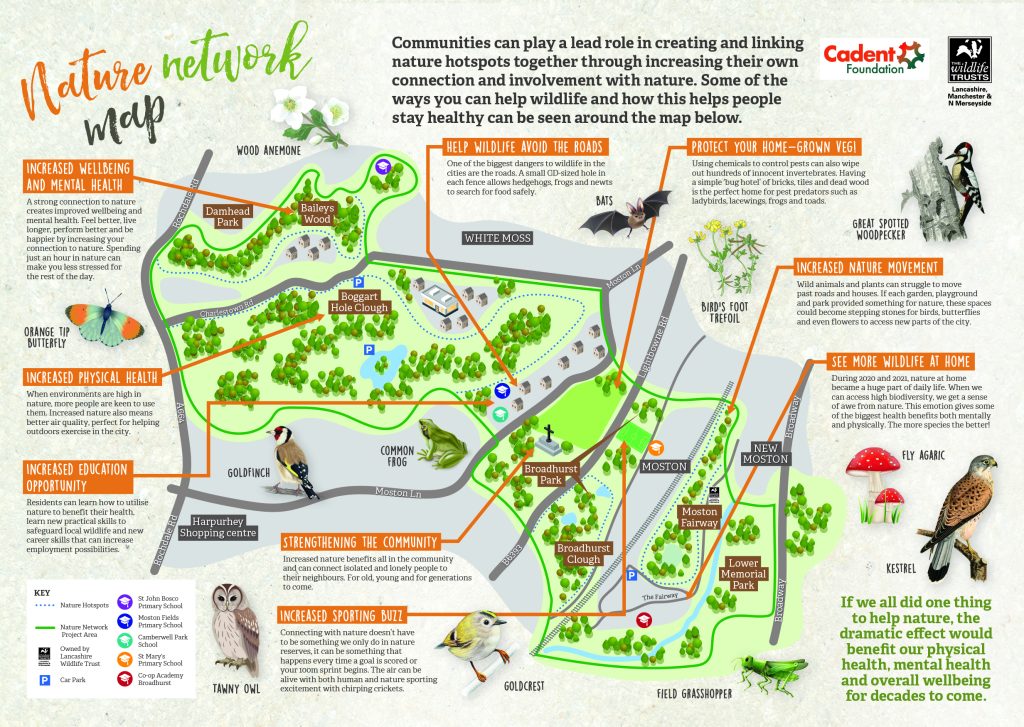
Russ has been working with a group of volunteers who meet up each week and has also organised nature themed events throughout the summer. It’s a year-long project…
“…connecting people to wildlife, tackling isolation and loneliness and increasing nature’s diversity”.
Here are some examples of what’s been going on…
Balsam Bashing: Balsam is not an ugly plant by any means, the problem is, it’s invasive and prolific. That means it doesn’t really belong here, has no insect predators to control it so it spreads like mad. It prevents other plants from flourishing and the environment as a whole suffers. There’s a ‘window’ for getting rid of it so any time prior to the seed pods appearing is fine. After that, attempts to destroy it are more likely to aid its spread.
The root system is small for such a large plant so you just pull up and pile up (out of sight preferrably) and let it rot down.
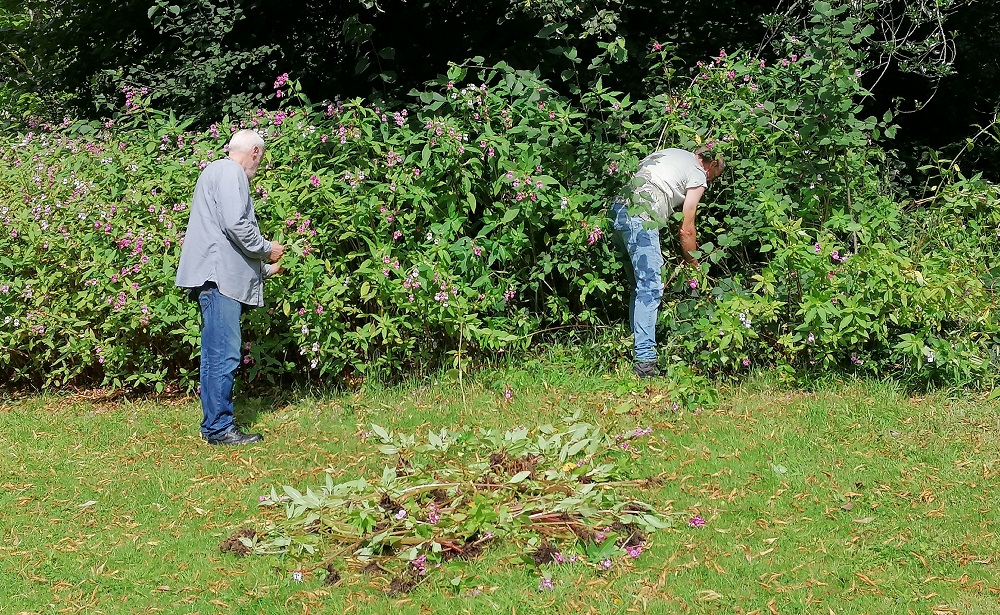
Rhododendron is also an invasive species. It’s trickier to remove so it’s cut back and the branches woven into low hedges rather than left in a pile. The hedges provide the perfect habitat for small mammals and insects.
Sapling removal: At a time when tree planting is actively encouraged you may wonder why sapling removal is important. It depends on where the saplings are. We created a clearing near the pond on Broadhurst Clough to prevent them overtaking it and giving smaller plants access to light.
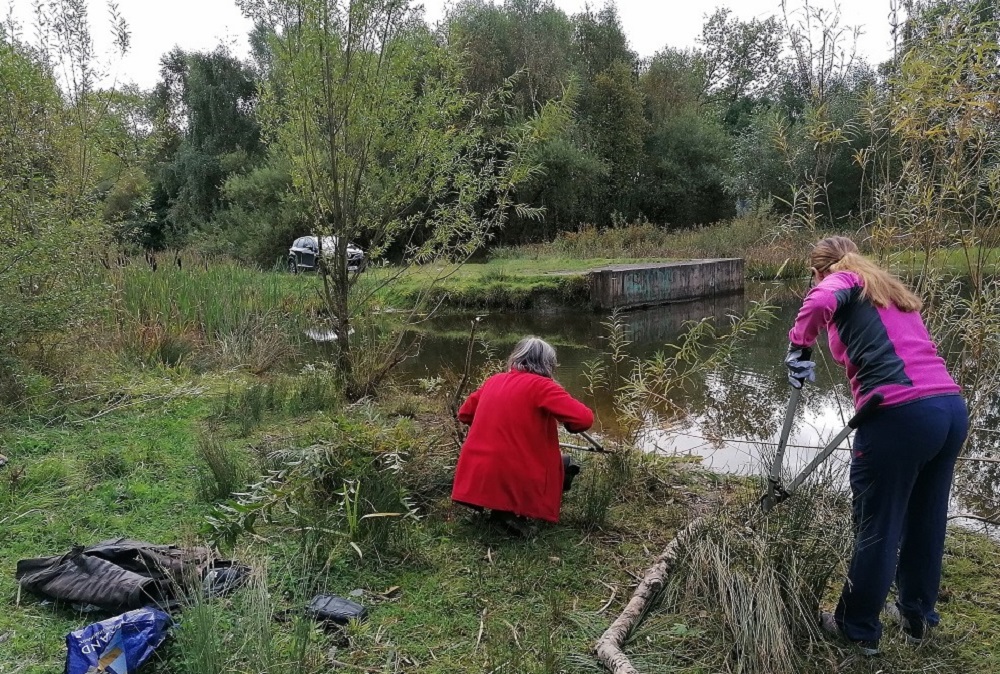
Wild flower planting: Hundreds of wild flowers have been planted across all the sites to increase diversity and encourage insects to spread from one site to another. Planting a few in your own garden would help too.
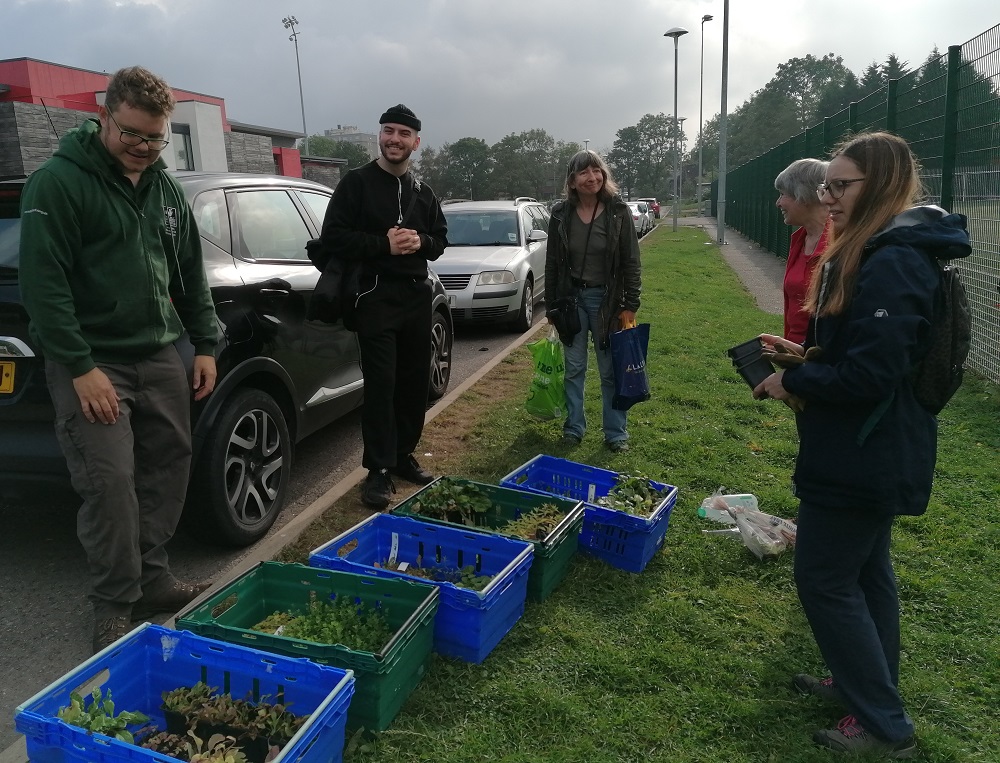
Bat Walks: Russ led several of these towards the end of summer. I went on one and it was AMAZING. Bats are fascinating creatures and most of the time you wouldn’t know they were there. The UK has 18 species, which is a lot! They’re excellent pollinators and can eat around 3,000 insects a night. Their numbers have been in decline though so the more we learn about how they thrive the better we can help them.
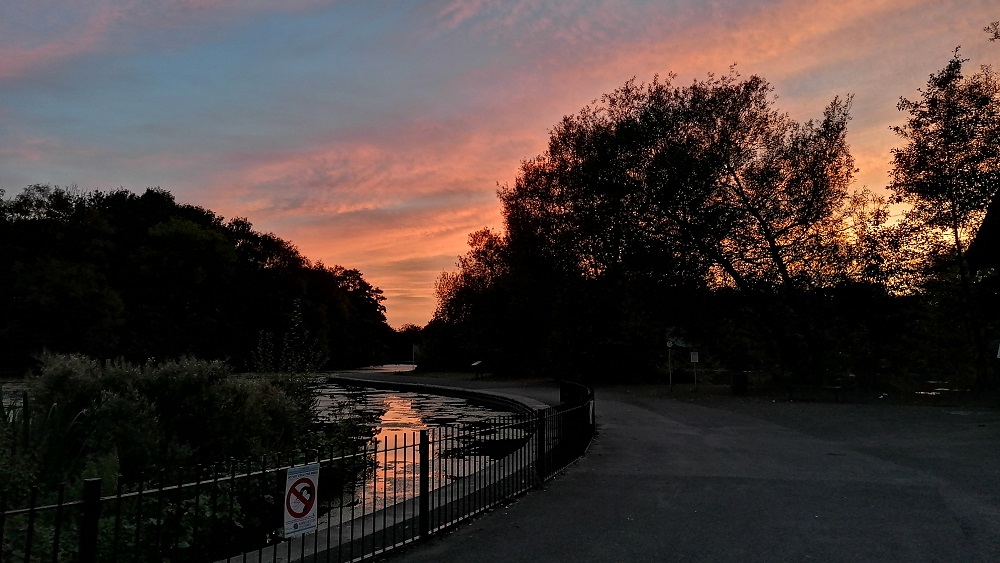
Fungi walks: Led by Fungi expert Dave Winnard. What can I say? The man is a legend. We were truly entertained and even managed to find some mushrooms in the unusually dry tracts of the Fairway Nature Reserve. This is Manchester: It rains, except when you want it to. I haven’t stopped spotting mushrooms ever since though and, I quote, “they are one of the primary pillars of the food web…playing a critical role keeping forests and fields healthy”. Some have rather dubious properties – or so I understand!
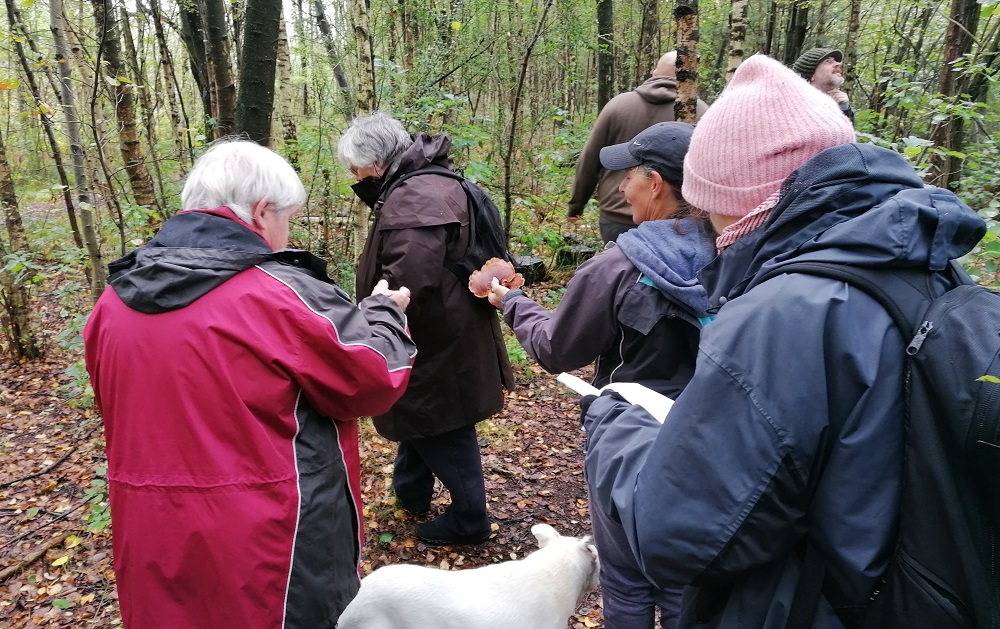
In addition to these, Russ has also led Wildlife and Wellbeing Sessions at the NEPHRA centre, bug hunts, nature walks, litter picks, dinosaur trails, bioblitz events and he’s got plans for more activities over the coming months.
The project ends next spring so there are still lots of opportunities to get involved. Keep an eye out on Social media.
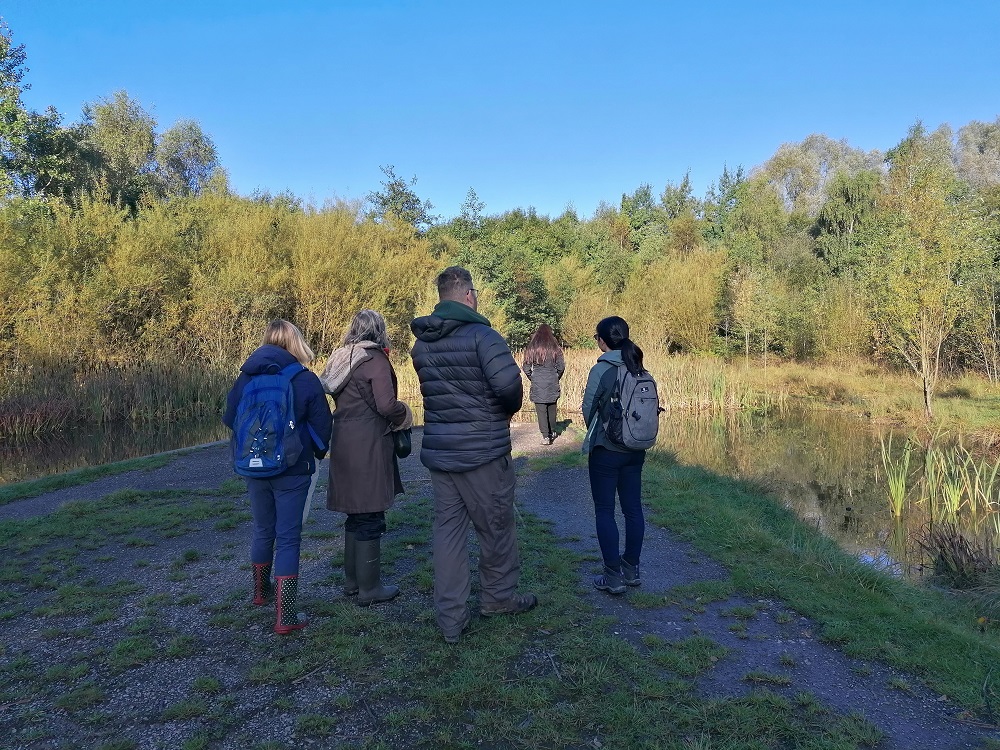
If you fancy volunteering contact Russ at mywildcity@lancswt.org.uk for details. You learn something new every time, meet fantastic people with a shared interest and give nature a helping hand.
Making small changes to your garden can help nature too. Think ‘insect friendly’ when you’re buying plants or have a veg patch. Leave a bit of lawn ‘unmown’ for a while, have a corner with a few old logs in or make a small pond – an old washing up bowl will do. The diversity will provide lots of wonderful habitats for natures little beasties.
Or, take a walk around our local countryside and just enjoy the green space.
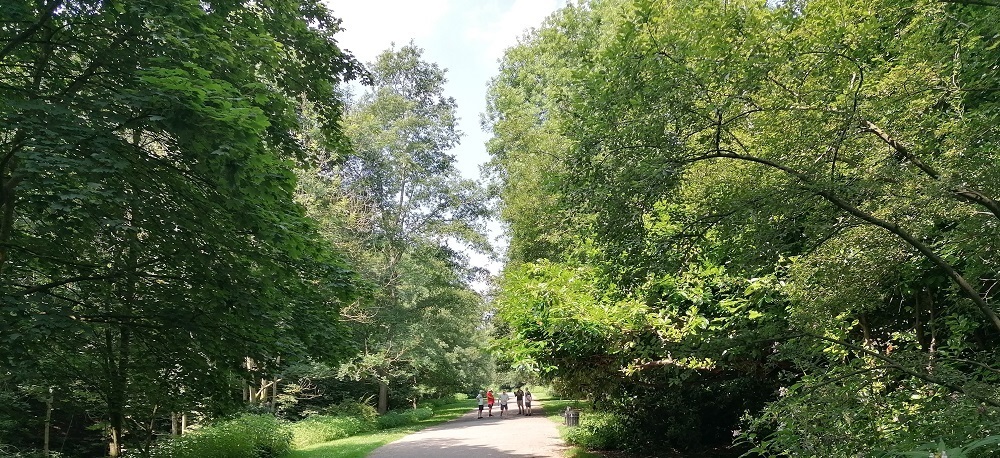
Here are some links to keep an eye on: Moston Brook Friends Group and Forever Harpuhey and Moston on Facebook, The Lancashire Wildlife Trust, Memories of Boggart Hole Clough on Facebook.
David Winnard’s Discover the Wild website is definitely worth a look at and the iNaturalist uk app is brilliant for recording the wildlife you see.